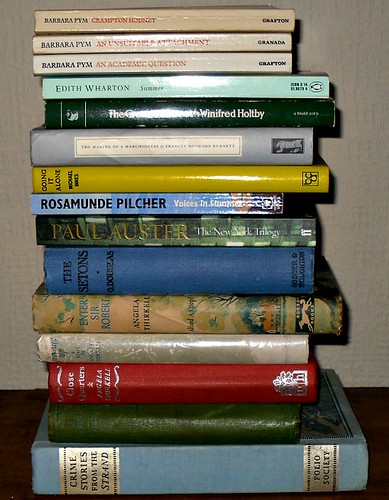This book was first published in 1922, it was the fourth book to be written by O.Douglas and it comes in between Penny Plain and Pink Sugar. It is exactly as the title says, all about Ann and her mother, the Ann being O.Douglas (Anna Buchan)herself. The mother was of course also mother of John Buchan.
I really enjoyed this one, apart from anything else it gave me so much information on the Buchan family and answered a lot of questions I had had. By this time Mrs Douglas is a widow who misses her husband a lot and is becoming quite depressed and ready for her own appointment at the pearly gates. Ann has decided to write her mother’s ‘life’, it’s a way of getting her mother to talk about happier times and her three children who have already been ‘taken’.
The family originally came from Peebles (Priorsford) of course but they moved to Kirkcaldy (Kirkcaple) when Mr Buchan (Douglas) became the minister of the Free Church of Scotland in the town.
I had often wondered how they managed to survive such a change of scene from the soft hills and river scenery of the borders to the icy North Sea blast of Kirkcaldy, and this book has the answer. The family seems to have been full of wild children, not what you would expect from the children of the manse at all.
They did move away after staying in Kirkcaldy for about 13 years but I can imagine that when this book was first published the townsfolk must have been quite thrilled as there are so many local streets mentioned and even the names are local ones, I wonder if they were the real people or the names had been changed.
Glasgow was their next destination and that must have been an even bigger shock to them as they found themselves in a very poor and deprived neighbourhood with not much of a congregation. There is an inevitable churchiness and biblical quotations abound in these books but they are very readable and I think that O.Douglas would have made a good agony aunt for a magazine because she is full of good common sense and helpful observation. Given the time this was published I imagine that it was read by many a woman who had lost sons in the Great War, and it might have given them some solace to read about another woman in their position.
The Buchans were members of the Free Church of Scotland which is the very strictest form of Presbyterianism, so I was surprised to see that a Christmas tree was mentioned. They must have been a fairly lax set of ‘Wee Frees’ – as they’re nicknamed. It was only a few years ago that a minister was on the news because he had banned a Christmas tree from outside a primary school. They’re seen as pagan symbols and so I suppose the work of the devil. It was also mentioned that they sang hymns, something else which I thought was unheard of as they don’t allow music – it’s also the work of the devil.
The only thing the Wee Frees really seem to enjoy is fighting amongst themselves and every ten years or so they have a big fight and break into yet another schism, then they have a big argument about who owns the church and manse.
Anyway, none of that nonsense goes on in this book and I think this is my favourite of her books so far.


